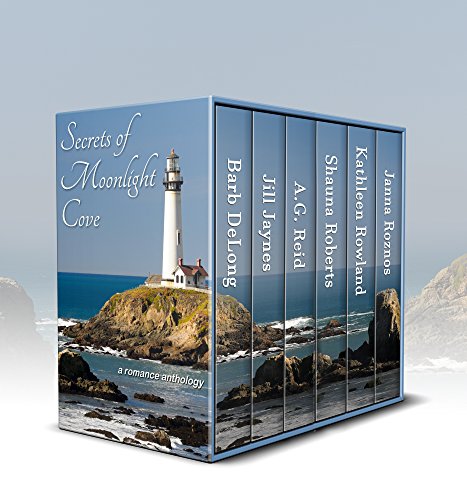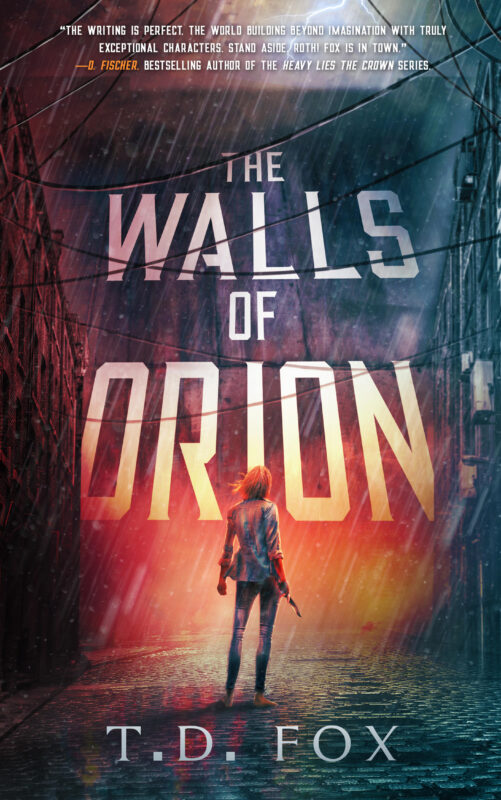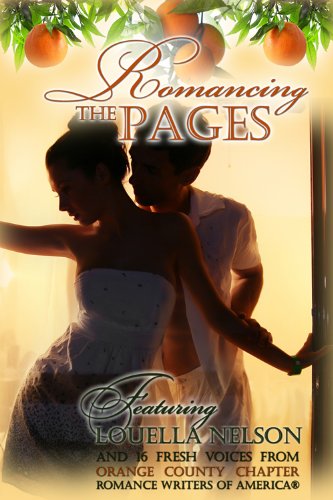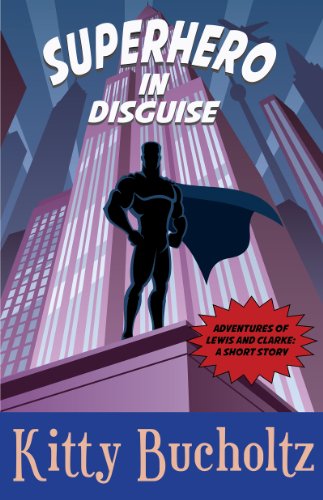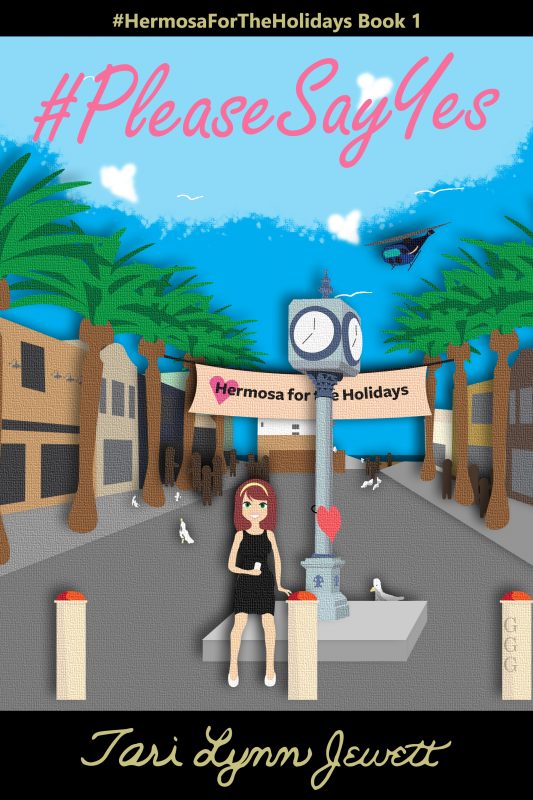How I Got Bit In The Butt And Survived!
February 20, 2017 by Meriam Wilhelm in category A Bit of Magic by Meriam Wilhelm, Writing, Writing: It's a Business tagged as editing, Meriam Wilhelm, self publishing, The Witches of New Moon Beach
This past year I authored my first fiction series, The Witches Of New Moon Beach. Like all new authors, I was totally excited to share what I had written and couldn’t wait to see my books posted up on Amazon. I had such a blast writing the series and had fallen in love with both my characters and my newly created beach city. I felt confident that my book covers were strong and that I had a solid plan for marketing each of the three (now four) books in the series.
Unfortunately for me, I let my excitement to share override my common sense. Sure, I had checked and rechecked for spelling errors and I even had three different people read my first book. I knew that there were individuals out there that you could pay to edit your books, check for typos, misused words or grammatical errors. But since I hadn’t yet made a dime I was resistant to spend money on the above mentioned even though in the back of my mind, I had a pressing fear that I might just have missed something. Grammar is just not my thing!
And so I proudly posted my first book for all to see and was immediately bitten in the butt by reviewers. Yes, there were a few kind comments, but then the bite came as I read “the grammatical errors were sometimes humorous” and “the book is filled with typos that simple editing could rectify.” One reader said I wrote like a teenager. Ouch!
How had this happened? I had done more than simple editing. What had I missed? I immediately took the book down and got some help. I repeatedly read the book back to front searching for errors. I tried out several editing software packages before purchasing Ginger and I ran book one past a high school English grammar teacher who I respected. I agonized before putting it back up. But the cleaning apparently worked since 73% of my reviews from then on were 4’s and 5’s and I’ve not been hit with negative remarks on spelling or typos again.
Let me say this clearly, I deserved to be bitten in the butt for posting a book with internal errors. I own this and boy did that hurt! I’m sure that I lost more than a few readers who were disappointed by my poor editing skills and either didn’t finish reading book one or never ventured toward purchasing books 2, 3 or 4. I’m saddened that they never got a chance to get to know my characters or to experience the magic within the pages.
Skip forward to my 5th book which will be out in early February 2017. I have spell checked it repeatedly, used my Ginger software for grammatical screening and had two different people read it for possible errors. However, this time, I’m also going to spend a few bucks to have a professional edit my book. Why? Because I can still remember how badly I felt when reading those negative reviews; reviews that I had earned. There is nothing worse than being disappointed in yourself.
I also learned something very important. It’s hard to see your own errors after you have lived with a story from birth to finish. I guess that I read right past mistakes more than once. My brain read the word site when I had actually spelled it sight. And semicolons took the place of far too many commas. I even failed to capitalize a word or two clearly by reading too quickly through the story.
In the end, I survived. Painful though it was, I learned a great deal from this experience. My counsel to you? Protect your butt – take your time, do your homework and then consider getting some professional help.
My best wishes to you as you successfully share your future stories with the world!
The one thing I know, after all my years as an elementary school principal, is that there is magic everywhere and in everyone. When I retired after 35 years in education, I longed to share all that I had learned and created several parenting books on topics from bullying to homework strategies. While I miss those enchanting moments with children and their parents, I always wanted to let my imagination run wild as I sought out my own magic and wrote about it. In short, I was lured into the world of fiction writing where I soon created my first series, The Witches of New Moon Beach. The first book, Morning Magic is currently FREE.
Inspiration isn’t hard to find as I have lived in Redondo Beach, California all my life and New Moon Beach might have more than a passing resemblance to my hometown. Every day I walk on the path that runs along the beach, sometimes with my sisters, but most often with my thoughts as I plot out my next book. I am long married and mom to three great grown kids. When I’m not writing or walking on the beach, you’ll find me sewing, reading or traveling and taking pictures.Feel free to check out my website: www.meriamwilhelm.com
Character Flaw(less)
February 16, 2017 by Rebecca Forster in category The Write Life by Rebecca Forster tagged as #amwriting, Rebecca Forster
Everyone Wants to Write a Book by Connie Vines
February 13, 2017 by A Slice of Orange in category Writing tagged as Connie Vines, Cowboys, Free eBooks, Valentine's Day, writing
Topic for February: Everybody wants to write a book, but most do not.
Writing is hard work . What got you started, and what helps you get through a complete story?
. What got you started, and what helps you get through a complete story?
How many times have you heard someone say, “Someday I’m going to write a book?” Many a time, I”m certain. However, most do not.
Why? Because writing is hard work.
What got me started? Like most children, I loved reading, drawing, and listening to the oral family history spoken by my grandparents. I also like to write stories (not particularly good stories) but for a second grader I did have a handle on the concept of plotting. Thinking back, I unnerved adults with my pointed interview questions, and thoughts about the meaning of life and life-after-death vs death-after-death. Picture: Tuesday Addams wearing glasses and constantly grumbling about receiving yet, another stupid doll instead of a filling cabinet for her birthday.
When, exactly, did I start and complete my first novel?
While I wrote short-stories, nonfiction articles for publication during my twenties, I didn’t get serious about completing a novel until thirties. My children were in school and I worked part-time. That gave me a block of free time to write (vs the scribbling on 3 x 5 index cards when I was cooking dinner or a note pad during a child’s 1 hour nap). I was serving on my church board when the choir soloist told me her sister was a co-president of the Orange County Chapter of RWA (Romance Writers of America). At the time, I hadn’t every thought of writing a romance. I wrote for the YA and middle school market and dabbled in historical fiction, but Shirlee convinced me that the networking and workshops would be beneficial to me. She was correct.
Attending monthly meetings/workshops, exchanging rough drafts with my critique members during lunch, and input from the multi-published members gave me the confidence to persevere. It also made me crawl out of bed after my husband left for work (at 3:00 in the morning) and write before getting my children off to school.
I also discovered that I couldn’t give up my YA stories while I found my footing in a new market.
“So, what did Connie do?” you ask.
I work two novels at once which I still do to this very day.
Crazing making? Yes!
Writing romance isn’t easy. Strong, well-developed characters, good plot (and multiple subplots), sharp dialogue, and emotion-lots of emotion.
Writing is addictive. The story unfolds, the characters present themselves, and away the writer goes into a new Universe.
What makes me complete my novel/story?
The best way for me to describe the feel is I am driven to finish the story. Native Americans say the story chooses the Storyteller. It the Storyteller’s responsibly to bring the story to life.
Happy Reading and Happy Valentine Day!
My Rodeo Romances (Lynx and Brede) are on sale this month (click on my Amazon Author Page link). Even Zombies need love. Indulge in a little Zombie Valentine Romance. For FREE!! Here Today, Zombie Tomorrow on Amazon.com
Connie
How Mercy Street on PBS reminded me why I write romance by Jina Bacarr
February 11, 2017 by Jina Bacarr in category Jina’s Book Chat tagged as 99 cents, alpha, billionaire, books, box set, Confessions of a Podcast Goddess, Jina Bacarr, Mercy Street, PBS, romance |
It’s been a rough week.
Make that year.
A lot of stuff going on in my life that sometimes makes me crumble in a heap and ask myself why I keep going.
But I do.
Because I like I what I do. Writing. Some days I love it, other days . . . well, you know the drill.
Recently, I’ve taken on a deadline to write a new book for a Kindle Worlds series (there’s nothing more gratifying than when you’re asked to write for a line), but it’s a short deadline and it’s a genre that’s different than what I’ve been doing (vampires as opposed to princesses — more about that as we hit that March deadline).
But I’m also in a box set with a novella I wrote that releases next week. Now, you’re probably wondering what this has to do with the PBS Civil War series, Mercy Street. It’s simple. After a grueling week of staying up as late as 6 a.m. every night to write my novel and make videos (I do it all — from the voiceovers to the production of the videos with music and graphics), I finally got to watch Episode 3 of Mercy Street.
But not until I uploaded video #18 tonight — yes, I made 18 + 2 more videos in the past week to promote the box set (a 60 second video for each author). Yes, 20 videos in all.
I was bleary-eyed, slumped over, sick of listening to myself on the videos, and crazed over trying to make them perfect little gems (they’re not, but I try).
Then I watched Mercy Street.
***Spoiler alert — if you haven’t seen Episode 3 of Mercy Street, you may want to come back when you have.
Now I love Dr. Foster, the hero. He’s a lot like the hero in my Kindle Scout winner, Love Me Forever (a Civil War time travel romance) and Nurse Mary is like my time traveling heroine. Mary is sick — and the new meanie on the show, a Union officer whose name I don’t want to remember, is sending her away from the hospital (and Dr. Foster).
This is where the resident female rival comes into play. You just can’t help but want to kick Nurse Hastings in the petticoats most of the time, but on this episode she’s a true romance heroine. We find out she lost her soldier love in another war and she has a change of heart about messing up the lives of our doctor and nurse. She sends Dr. Foster back to the hospital hotel in time for him to go to the docks to see Nurse Mary.
Here’s the moment that made my week:
When Dr. Foster jumps onto the steamboat taking our Mary away, he claims her as his patient and comforts her. When he takes her hand and their eyes meet, I wanted to cry. Then he gives her a book. Ulysses. As they quote from the Tennyson tome about not giving up, you know they love each other. He kisses her on the forehead and their hands try to hold onto to each other, but they’re forced to break away. But in spite of the war and the mean old Union major, we know somehow these two will be together again.
Made me proud to write romance.
Because love endures. In spite of everything.
And ain’t that grand.
============
Thanks for listening! And in case you’re wondering about all those videos I made, here’s the promo for our Facebook Party next Wednesday, Feb 15th 7:30-11 p.m. (CLICK here to see the vids)
Happily Ever Alpha Facebook Party February 15, 2017 from Jina Bacarr on Vimeo.
See you next time!
Jina
PS — I’m worried about Nurse Mary. She may be sicker than we thought. Tune in next week to find out. I know I’ll be watching . . .
PPS — if you’re curious about the Kindle Scout program:
***You can read my posts about my experience with the Kindle Scout program by clicking on Part 1, Part 2, Part 3, Part 4, and Part 5
blog: www.jinabacarr.wordpress.com
www.facebook.com/JinaBacarr.author
https://twitter.com/JinaBacarr
www.pinterest.com/jbacarr
https://instagram.com/jinabacarr/
Planning Your 2017 Calendar by Kitty Bucholtz
February 10, 2017 by Kitty Bucholtz in category It's Worth It by Kitty Bucholtz, Writing: It's a Business tagged as It's Worth It, Kitty Bucholtz, time management, Valentine's DayIt might seem in December when the new year is looking bright and shiny and empty that you can get everything done you ever imagined! But when you look back over the last year, you may realize that you are often overconfident about what you can do.
Being disappointed in yourself erodes your confidence for the next year, which erodes it for the following year, etc., and I want to help you keep that from happening. So this is what we’re going to do: go get a calendar. Any calendar will do, but one you like and can use easily will be the best one for you.
Starting in January, cross off every day that you know you won’t be able to work on your goals. For instance, if weekends are always for family, cross off all the Saturdays and all the Sundays from the year. Your 365 days just came down to 261 – poof! Just like that!
About how many days were you home sick last year? How many days were you taking care of someone else who was sick? Plan a few sick days into your calendar, subtracting them from the total days left but leaving them “available for use.” There is no point in feeling guilty about being sick, and we both know that a good rest will often get you back to work sooner and better than trying to work through it.
Now look at your list of the 5 to 10 goals you wrote down since last month. You can either plan forward or plan backward. To plan forward, look at each goal and figure out about how much you can accomplish per day on that goal. Then plot it out on your calendar to see what date that last day lands on. Put a sticky note on that date with the goal. The sticky note is so that when things come up, you can move the goal without scribbling all over your calendar.
Or if you already have a goal date in mind, you can plan backward. Say you want to finish the first draft of your next book by May 1. How many days do you have left on your calendar, the ones that are not crossed out, between now and May 1? And how many words do you expect your first draft to be – 50,000 words? 100,000 words? Take the word count and divide by the number of days. This is your daily writing goal.
Continue in this way, planning forward and/or backward for each goal, until you’ve plotted everything out on your calendar. Now look at each of the twelve months. Is it challenging but doable? Does it make you break out in a cold sweat? Do you need to move a few things around? Did you schedule in a little down time, “you” time?

Kitty Bucholtz
Kitty Bucholtz decided to combine her undergraduate degree in business, her years of experience in accounting and finance, and her graduate degree in creative writing to become a writer-turned-independent-publisher. Her superhero books for women and romantic comedies are available wherever ebooks are sold, as well as in print and audiobooks. Check out her new Valentine’s Day novella, My Bullheaded Superhero Valentine.
Affiliate Links
A Slice of Orange is an affiliate with some of the booksellers listed on this website, including Barnes & Nobel, Books A Million, iBooks, Kobo, and Smashwords. This means A Slice of Orange may earn a small advertising fee from sales made through the links used on this website. There are reminders of these affiliate links on the pages for individual books.
Search A Slice of Orange
Find a Column
Archives
Featured Books
SECRETS OF MOONLIGHT COVE: A Romance Anthology
Moonlight Cove, where everyone has a secret…
More info →ROMANCING THE PAGES
Celebrate all year long through Romancing the Pages
More info →#PLEASE SAY YES (#HermosafortheHolidays Book 1)
So, you think social media has taken over YOUR life?
More info →Newsletter
Contributing Authors
Search A Slice of Orange
Find a Column
Archives
Authors in the Bookstore
- A. E. Decker
- A. J. Scudiere
- A.J. Sidransky
- A.M. Roark
- Abby Collette
- Alanna Lucus
- Albert Marrin
- Alice Duncan
- Alina K. Field
- Alison Green Myers
- Andi Lawrencovna
- Andrew C Raiford
- Angela Pryce
- Aviva Vaughn
- Barbara Ankrum
- Bethlehem Writers Group, LLC
- Carol L. Wright
- Celeste Barclay
- Christina Alexandra
- Christopher D. Ochs
- Claire Davon
- Claire Naden
- Courtnee Turner Hoyle
- Courtney Annicchiarico
- D. Lieber
- Daniel V. Meier Jr.
- Debra Dixon
- Debra H. Goldstein
- Debra Holland
- Dee Ann Palmer
- Denise M. Colby
- Diane Benefiel
- Diane Sismour
- Dianna Sinovic
- DT Krippene
- E.B. Dawson
- Emilie Dallaire
- Emily Brightwell
- Emily PW Murphy
- Fae Rowen
- Faith L. Justice
- Frances Amati
- Geralyn Corcillo
- Glynnis Campbell
- Greg Jolley
- H. O. Charles
- Jaclyn Roché
- Jacqueline Diamond
- Janet Lynn and Will Zeilinger
- Jaya Mehta
- Jeannine Atkins
- Jeff Baird
- Jenna Barwin
- Jenne Kern
- Jennifer D. Bokal
- Jennifer Lyon
- Jerome W. McFadden
- Jill Piscitello
- Jina Bacarr
- Jo A. Hiestand
- Jodi Bogert
- Jolina Petersheim
- Jonathan Maberry
- Joy Allyson
- Judy Duarte
- Justin Murphy
- Justine Davis
- Kat Martin
- Kidd Wadsworth
- Kitty Bucholtz
- Kristy Tate
- Larry Deibert
- Larry Hamilton
- Laura Drake
- Laurie Stevens
- Leslie Knowles
- Li-Ying Lundquist
- Linda Carroll-Bradd
- Linda Lappin
- Linda McLaughlin
- Linda O. Johnston
- Lisa Preston
- Lolo Paige
- Loran Holt
- Lynette M. Burrows
- Lyssa Kay Adams
- Madeline Ash
- Margarita Engle
- Marguerite Quantaine
- Marianne H. Donley
- Mary Castillo
- Maureen Klovers
- Megan Haskell
- Melanie Waterbury
- Melisa Rivero
- Melissa Chambers
- Melodie Winawer
- Meriam Wilhelm
- Mikel J. Wilson
- Mindy Neff
- Monica McCabe
- Nancy Brashear
- Neetu Malik
- Nikki Prince
- Once Upon Anthologies
- Paula Gail Benson
- Penny Reid
- Peter J Barbour
- Priscilla Oliveras
- R. H. Kohno
- Rachel Hailey
- Ralph Hieb
- Ramcy Diek
- Ransom Stephens
- Rebecca Forster
- Renae Wrich
- Roxy Matthews
- Ryder Hunte Clancy
- Sally Paradysz
- Sheila Colón-Bagley
- Simone de Muñoz
- Sophie Barnes
- Susan Kaye Quinn
- Susan Lynn Meyer
- Susan Squires
- T. D. Fox
- Tara C. Allred
- Tara Lain
- Tari Lynn Jewett
- Terri Osburn
- Tracy Reed
- Vera Jane Cook
- Vicki Crum
- Writing Something Romantic
Affiliate Links
A Slice of Orange is an affiliate with some of the booksellers listed on this website, including Barnes & Nobel, Books A Million, iBooks, Kobo, and Smashwords. This means A Slice of Orange may earn a small advertising fee from sales made through the links used on this website. There are reminders of these affiliate links on the pages for individual books.










